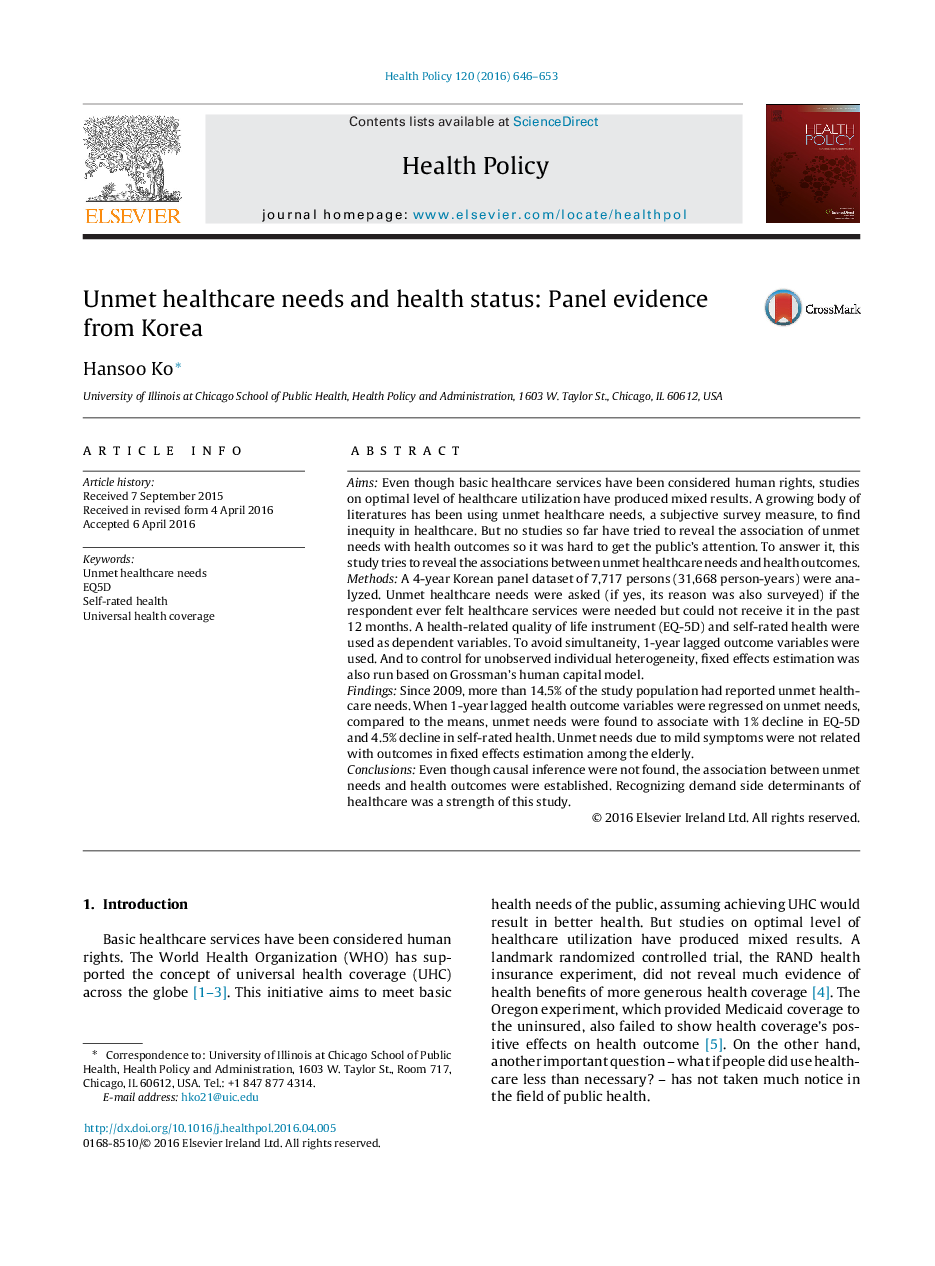| Article ID | Journal | Published Year | Pages | File Type |
|---|---|---|---|---|
| 6238941 | Health Policy | 2016 | 8 Pages |
â¢The association of unmet needs with health outcomes was studied with a 4-year Korean panel data.â¢This study used lagged outcome variables and fixed effects estimations.â¢Unmet needs were associated with 1% decline in EQ-5D.â¢Unmet needs were associated with 4.5% decline in self-rated health.
AimsEven though basic healthcare services have been considered human rights, studies on optimal level of healthcare utilization have produced mixed results. A growing body of literatures has been using unmet healthcare needs, a subjective survey measure, to find inequity in healthcare. But no studies so far have tried to reveal the association of unmet needs with health outcomes so it was hard to get the public's attention. To answer it, this study tries to reveal the associations between unmet healthcare needs and health outcomes.MethodsA 4-year Korean panel dataset of 7,717 persons (31,668 person-years) were analyzed. Unmet healthcare needs were asked (if yes, its reason was also surveyed) if the respondent ever felt healthcare services were needed but could not receive it in the past 12 months. A health-related quality of life instrument (EQ-5D) and self-rated health were used as dependent variables. To avoid simultaneity, 1-year lagged outcome variables were used. And to control for unobserved individual heterogeneity, fixed effects estimation was also run based on Grossman's human capital model.FindingsSince 2009, more than 14.5% of the study population had reported unmet healthcare needs. When 1-year lagged health outcome variables were regressed on unmet needs, compared to the means, unmet needs were found to associate with 1% decline in EQ-5D and 4.5% decline in self-rated health. Unmet needs due to mild symptoms were not related with outcomes in fixed effects estimation among the elderly.ConclusionsEven though causal inference were not found, the association between unmet needs and health outcomes were established. Recognizing demand side determinants of healthcare was a strength of this study.
